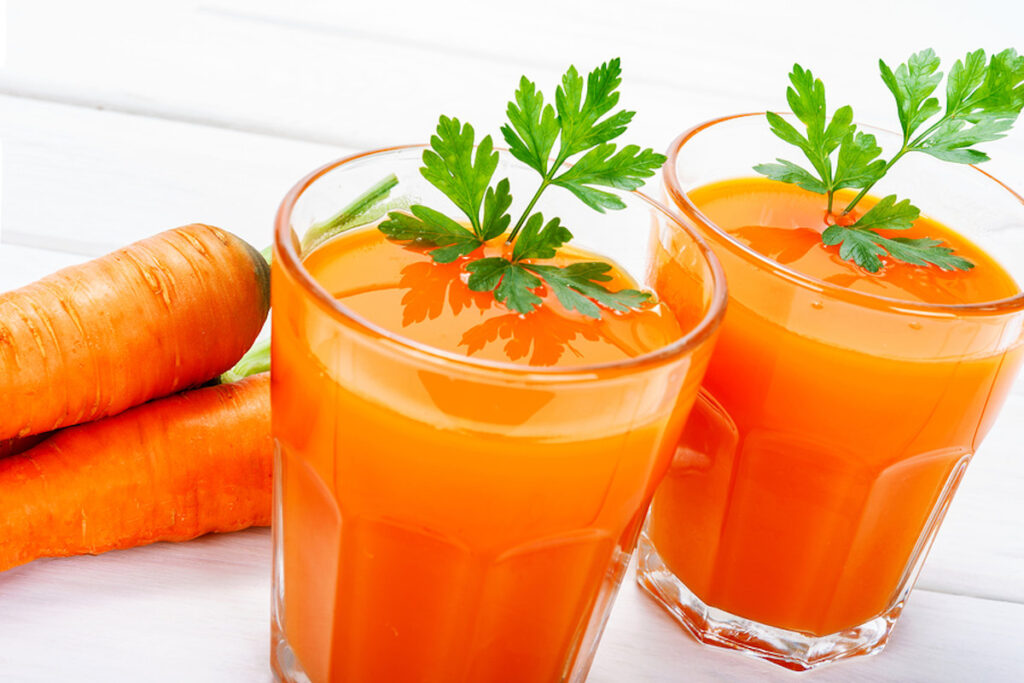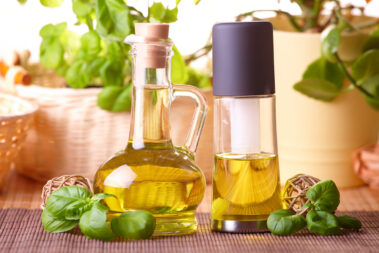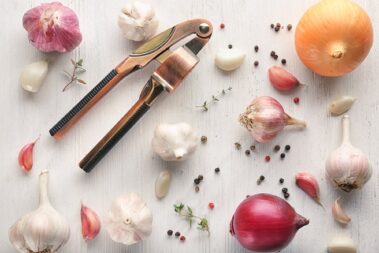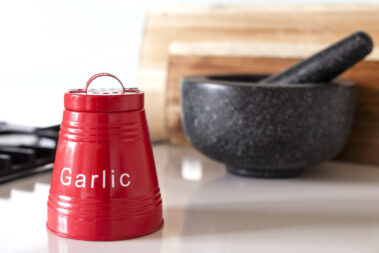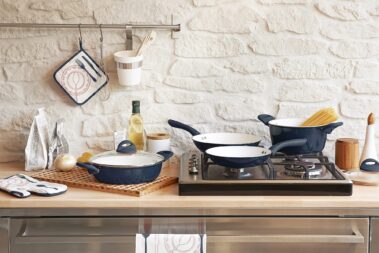Juicing is an excellent way to provide your body with a wealth of vitamins, minerals, and enzymes to improve your health and wellbeing. By juicing healthy fruits and veggies, you make more of those important nutrients available for your body to utilize.
But getting the most nutrition out of your produce isn’t as simple as buying the first juicer you see.
How the juicer operates, how it collects the juice, and how fast it runs all play into just how nutritious (and tasty) your final product will be. And this is especially true when you are looking to juice hard vegetables like carrots, beets, and other roots and tubers.
To make the process of finding the right juicer for you a whole lot easier, we’ve reviewed our top five favorite root juicers below. We’ve also included our handy juicer buying guide at the end of this article so you can be sure you are getting exactly what you need.
[hfcm id=”14″]
Table of Contents
The Best Juicers for Carrots
1. Top Choice: Omega J8006HDS Nutrition Center Quiet Dual-Stage Slow Speed Masticating Juicer
No products found.
If you are looking for a mid-range juicer that can handle dense veggies like carrots and beets but is also capable of effectively juicing greens and other delicate and highly nutritious superfoods, look no further than the Omega Nutrition Center.
This masticating style juicer utilizes a dual-stage juicing setup to extract the most nutrients from your produce. And, it does so with a quiet, continuous operation that makes turning your favorite fruits and veggies into nutritious juices a highly enjoyable experience.
This juicer comes with a 15-year manufacturer warranty, runs at a slow 80RPMs to effectively extract moisture, and can even be used to grind herbs, make nut and seed butter, and extrude pasta.
2. Tribest GSE-5000 Greenstar Elite Cold Press Complete Masticating Juicer
No products found.
For those out there who are serious about getting into the juicing game and want a machine that can handle just about anything you can throw at it without breaking down, this is the juicer for you.
The Tribeset Greenstar Elite is a triturating juicer that is guaranteed to remove as much moisture, nutrition, and enzymes from your produce as possible. The twin gear design breaks down fruits and veggies gently but completely, without introducing heat or oxygen, which known to reduce nutritional content. And, with fewer parts than your typical triturating or masticating juicer, this machine is fairly quick and simple to clean.
This juicer also comes with a 15-year warranty, runs at a slightly faster 110 RPMs for quicker but still highly effective juicing, and comes with additional attachments so you can use it as a food processor and homogenizer.
3. Breville JE98XL Juice Fountain Plus 850-Watt Juice Extractor
No products found.
If your goal is to find a user-friendly, quick-prep and quick-cleanup machine, then our number three choice is exactly what you need. This Breville centrifuge style juicer is simple to use, has a large feed slot that reduces pre-juicing prep work, and takes less time to clean than our number one and number two choices.
Like all centrifuge style juicers, this one runs fast, which makes it especially adept for moving through dense veggies like carrots. It won’t produce quite as much juice per piece of produce as the first two options on our list, but its ease of use easily makes it a contender as the best juicer for carrots, beets, and other dense and soft fruits and veggies.
This juicer comes with a 1-year warranty and every piece (other than the base) is dishwasher safe to save you extra time during clean up.
4. Hurom H101 Easy Clean Slow Juicer
No products found.
This juicer is a newer take on a masticating-style juicer. The machine is designed to sit upright, which means it will take up less room on your counter or in your cupboard and it has a much sleeker look than most juicers of this type.
This slow juicer moves at half the speed of our number one choice, a feature that can be frustrating for those in a hurry but pays off big time in terms of total output and nutrition for those with a little patience. This slower speed also means quieter operation. This model comes with a fine and coarse strainer so you can customize the pulp level of your final product. Both filters utilize long grooves rather than mesh to catch the pulp, which makes them a cinch to clean.
The motor is covered by a 10-year warranty while the remaining parts are covered by a 2-year warranty. It operates at a very slow 43 RPMs, making it a great choice for anything from dense veggies to fine greens.
5. Hamilton Beach Juicer Machine
No products found.
Last but not least, this Hamilton Beach centrifuge type juicer turns out delicious juices from a wide range of produce for about a quarter of the price of your normal midrange machine.
Like all centrifuge juicers, this fast-spinning, high-powered machine moves through fruits and vegetables quickly but isn’t quite as effective at removing moisture as others on this list. It is, however, a cinch to clean. And, with an extra-large 3-inch feeding shoot, you hardly have to prep your produce at all before turning it into healthy and delicious juice.
This more affordable juicer comes with a 3-year warranty and is a great option for juicing hard veggies like carrots as well as softer fruits. All removable parts are dishwasher safe and the entire setup is BPA free.
Your Juicer Buying Guide
If you are like most people, you probably had no idea there were so many different types of juicers available before you started your buying quest. Before you throw your hands up in the air and buy the cheapest (or the most expensive) juicer you can find, here is our simple guide to the different types of juicers and the pros and cons of each.
Different Juicer Types
There are three main types of juicers on the commercial market. Each utilizes a slightly different extraction method that comes with its own benefits and faults.
Centrifuge Juicers Pros and Cons
These common juicer types utilize a fast-spinning grater-type blade and a fine mesh strainer to separate the juice from the pulp. They have a high powered motor with some adjustability in speed.
On the plus side, these juicers tend to be the most affordable and are a great choice for the average consumer looking for a simple, reliable product. The straight-forward design also allows for relatively easy clean up.
Centrifuge types also tend to have a large mouth for feeding in big chunks of fruits and veggies, which save loads on prep time.
These types of juicers are great for juicing hard and soft fruits and veggies, but will struggle to effectively juice greens, fresh herbs, and lightweight produce.
On the downside, the high-speed motor and centrifuge action means your juice is exposed to a large amount of oxygen before it even makes it into your cup. While this has a negligible immediate effect, it does mean that juice from these machines will lose much of its nutritional value once it sits for more than a few hours.
These juicers also tend to leave you with wetter pulp, meaning they are less effective at extracting all the juice from your produce. While this isn’t a huge deal, it can add up to needing a lot of extra fruits and veggies if you are doing a large amount of juicing.
Masticating Juicers Pros and Cons
These juicers tend to be more robust than the cheaper centrifuge types and utilize a masticating auger that grinds the produce up and presses it against a fine mesh screen to release the juice.
This process allows even the finest of greens to be shredded and juiced while still working well with harder veggies. Because the motor works at slower speeds, these types of juicers tend to be more efficient at releasing juice and can help save you money when you’re buying for your weekly juicing needs.
There is also much less oxygen introduced into your juice using this system, which means the juice you create will stay good for longer–usually up to about two days in the fridge. They are also much quieter machines than other juicer types and make a perfect choice for those who want to enjoy their early morning juice without waking the whole house.
But, these juicers do tend to be more expensive and take a lot more time and effort to get clean because they contain so many internal parts. The shoot for loading your fruits and veggies also tends to be smaller, so you often have to chop up your produce before you juice it.
Triturating Juicers Pros and Cons
Lastly, triturating, or twin gear juicers, provide unparalleled juicing action by utilizing two interlocking gears that turn and grind produce to squeeze out the inner juices through a screen.
Like masticating juicers, these tend to be very effective at removing moisture from fruits and veggies and can reduce how much produce you need to make a glass of fresh juice. And they inject even less oxygen into the process, allowing the juice to stay fresh for up to three days in the fridge.
Because they utilize an even slower motor, they are the best choice for juicing greens and the only choice for juicing wheatgrass and other super-fine foods. This slow, more powerful motor also means these machines can be used to make nut butter and a long list of other vegan staples.
Of course, all that power and efficiency doesn’t come free and these tend to be the most expensive type of juicer. They can also be bulky and difficult to clean. Like the masticating types, they also require more prep work to chop veggies and fruits so they can be fed through the narrow funnel into the machine.
What Do You Want to Juice?
In the end, what juicer type will work best for you depends largely on what you want to juice.
For the average person who wants to juice a variety of fruits and veggies, including hard roots like carrots, a user-friendly, less-expensive centrifuge juicer is probably the way to go.
But, if you are more serious about your juicing and want to be able to extract every last bit of goodness from hard veggies like carrots and from delicate greens, spending the extra money on a masticating or triturating juicer is a good idea.
Whatever juicer you decide to go with, we know you won’t be disappointed if you follow our recommendations above. Especially after you take that first refreshing sip of fresh, homemade, juicy goodness.
Feature photo: ©wdnetstudio/Bigstock
- How to Pick the Perfect Watermelon For a Sweet Summer Treat - April 10, 2024
- Future Kind’s Foundations: A Multivitamin Made for Vegans - December 5, 2023
- Does Nutritional Yeast Go Bad? - November 28, 2023

